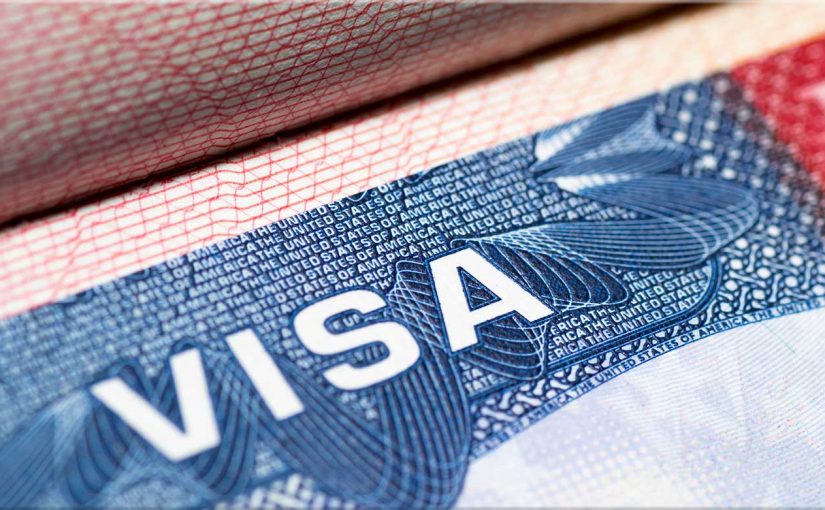
Interviewer: What’s the I-130 petition?
Jeanne Morales: An I-130 is that first step to filing for the spouse to have legal residence and when it’s approved, all it means is you’re approved to go to the next step.
It only takes three issues to get an I-130 approved: Are you who you say you are? Is the person you’re putting in for who they say they are? Is there a legal relationship between the two of you that allows one to put in for the other?
So parent-child and brother-sister and in some cases, spouse; those are the legal relationships.
For a spouse, in an I-130 package, we have to have the birth certificate of the person who’s making the petition, the birth certificate of the person they want to bring to the United States, and a marriage certificate showing the legal relationship. That’s the type of evidence we need to prove in I-130. I-130 is the first step of all family-based petitions.
Interviewer: Does that have to be completed in order for them to move forward?
The I-130 Process Generally Takes 6 Months
Jeanne Morales: For the waiver, you need to start the process of getting the paperwork for the person, and then at some point you stop and you address the waiver issues and then you finish the process.
Interviewer: How long is that process going to take?
Jeanne Morales: The 130, if there’s no issues, most of the centers that process those can complete the process in six months. When I say “when there are no issues,” sometimes we have people that have iffy paperwork.
What Raises Red Flags about Birth Certificates, Which Are Required to Be Presented to Begin the Application Process?
If the person who’s claiming to be a U.S. citizen and they have a U.S. birth certificate, if there’s something about that birth certificate that’s a red flag, then it will take longer. What would be a red flag?
How Long after Birth was the Birth Certificate Registered?
If the birth certificate was not issued close to the time when the person was born, that would raise a red flag. If you were born in September and you got registered in July the next year, that’s probably not going to raise a red flag. However, there are adults in this country who still don’t have birth certificates or they had birth certificates that were issued 10, 20 or even 30 years after they were born. That’s going to be a red flag that the government is going to take us closer to look at.
Another red flag would be if they had a birth certificate but the birth was not in a hospital or was attended by a midwife. Those are just areas where there has been fraud before, and so that is when the United States takes a closer look at those documents.
Does the Individual Possess Birth Certificates from 2 Countries?
Also, unfortunately, especially with the population from south of our border, there have been times that people in their past crossed and re-crossed the border between the United States and Mexico numerous times when they were young. The parents, for convenience, registered them on both sides of the border.
When they were in the United States, they were registered in the United States, and then if they went back to Mexico, then they registered that child in Mexico.
That is one of the hardest situations to deal with because in those cases there’s a presumption of fraud that we have to overcome. Of course the United States is going to say, ‘Well, you must be Mexican.’ Sometimes it’s well-meaning.
Sometimes the parents, if this happened back in the ‘50s or the ‘40s and the parents were just trying to register the child for school and were told, ‘You can’t register for a Mexican school unless you have a Mexican birth certificate.’
‘Let’s go down and get them a Mexican birth certificate.’ They were doing something for expediency at the time, which ends up causing problems for the child as an adult because they have conflicting documents.
Decades Ago, Some Large States in the U.S., such as Texas, Had Difficulty Obtaining Birth Certificates for Residents in a Timely Fashion
Interviewer: What generation are you seeing where that’s occurring?
Jeanne Morales: I would say age 30 and up. Let’s look at the history of birth certificates in Texas. Texas did not require birth certificates; it wasn’t a mandated state requirement until 1907. Even then, compliance was spotty and Texas was in the last group of states that achieved a minimal level of compliance throughout the United States, and that didn’t even occur until, I think, the 1940s.
Just because Texas is big, there’s a lot of space, there are little towns in between big towns and there were times back in the day when they couldn’t get a birth certificate issued in any timely fashion. Now, anybody who’s had a baby nowadays, the child is registered before they even leave the hospital, but it wasn’t that way originally.
The Catholic Church Keeps Baptismal and Other Records, Which Can Assist in Establishing the Country of Birth
Oftentimes, one of the things that we used to bolster whatever the allegations as far as the U.S. birth certificate would be a baptismal record. This is because the Catholic Church has been keeping records for centuries.
They had a very strong motivation to go out and minister to these little communities up and down the rural areas. They would baptize people or marry people or give last rites to people and a traveling priest would gather up all the documents and then bring them back to a central repository. Sometimes that’s where we have to go for our documentation for that age group.

